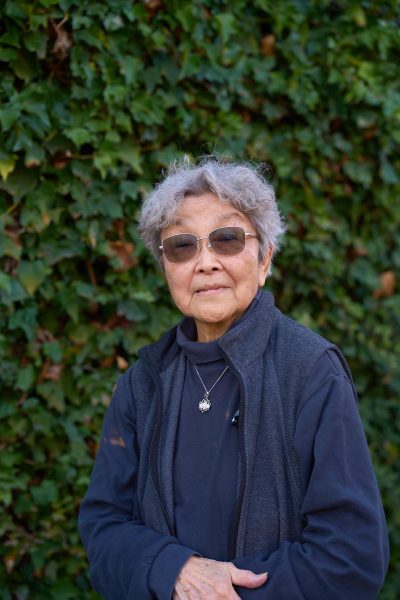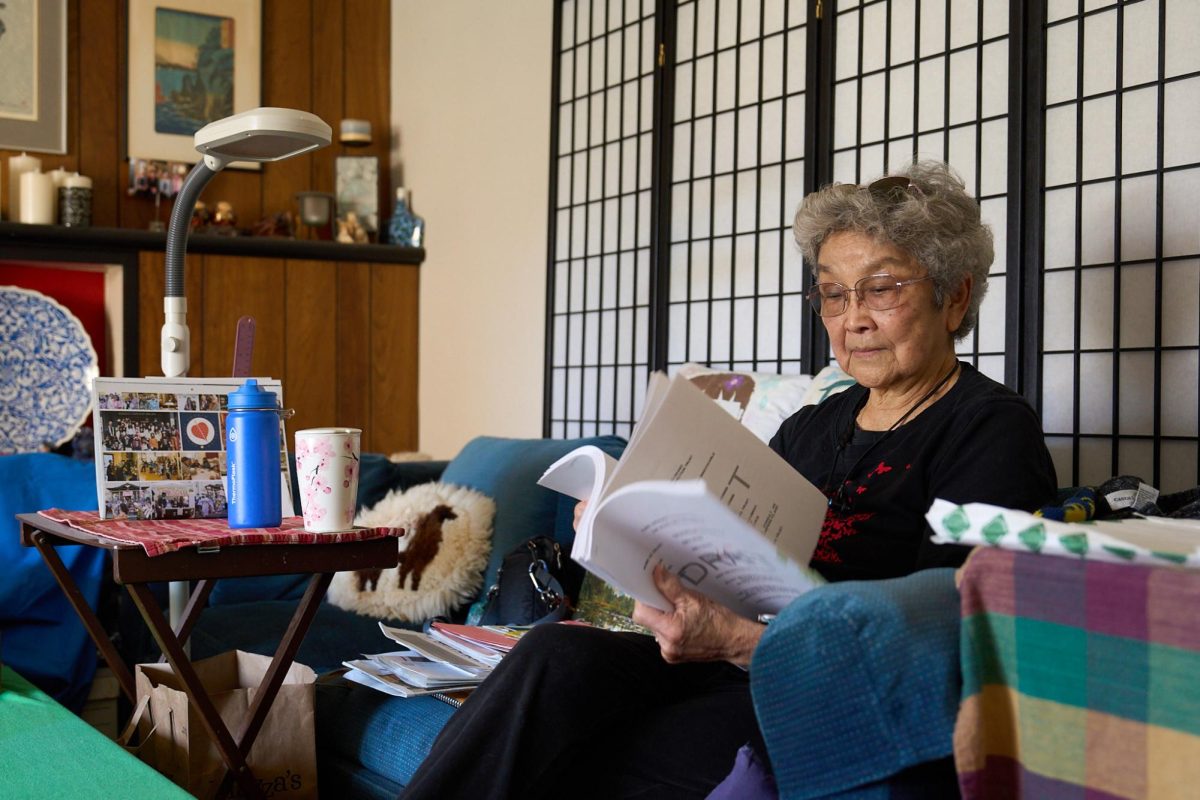When Eimi Okano, a Palo Alto resident and former educator, was paging through a school history textbook one day, she noticed that there were barely any stories or pictures of non-white people.
“We looked at all the text that had been adopted by the State Board of Education and that’s where we found out that there were no people of color in there,” Okano said, sitting in the backyard of her Palo Alto home on Feb. 10. “One of the things that happened in our time also was there was very little inclusion of Japanese American experiences. …What they did include, like when they mentioned Buddhism, was inaccurate.”
Okano expressed concern about the lack of ethnic representation in textbooks, emphasizing the importance for children to see themselves reflected in the people and stories they study. She believes without such representation, children may start to feel less valued.
“And it seems…if you’re not represented in textbooks that other kids are represented, then you get the feeling even though you don’t express it, that you don’t count in some way, that you’re less than, and that tends to multiply as you go through school,” Okano said. “And it’s not just textbooks, but it’s in terms of who the leadership is in the schools, who gets elected, who gets nominated.”
Okano, who was working for the Palo Alto Unified School District Parent Teacher Association in the 1980s, took her findings to the State Board of Education. She argued that the scarce representation of minorities in the textbooks didn’t reflect the reality that they made up more than 10 percent of the state’s population. Furthermore, the State Board of Education code required multicultural inclusion in adopted textbooks.
Okano, along with colleague Jeanette Arakawa, engaged in discussions with local legislators and individual members of the State Board of Education. She said her efforts to garner their support were met with little resistance.
“We didn’t have to defend the little that was there because there was nothing there,” Okano said. “It was all stories about white children and white families and maybe animal stories every once in a while, but I think that it was easy [to defend] in that context.”

According to Okano, after six years of advocating, the board finally passed a resolution to have the publishers amend the textbooks. Reflecting on the journey, Okano said that she was fortunate enough to work with people who were very supportive of her cause.
“So it was gratifying all the way around because we happened to have people who were logical and rational and could see our point of view and that it would be good for students to have diversity included [in the textbooks],” Okano said.
Okano’s activism extends beyond just diversifying textbooks. She also raised awareness around drug abuse and was one of the founding members of Asian Americans for Community Involvement, a Santa Clara County organization advocating for adequate representation of all ethnic minorities in the workplace and providing them with social services.
“At that time what was happening was that in terms of employment, Asian Americans were not able to get [jobs] beyond the entry level or the lower levels of an organization,” Okano said.
One initiative Okano worked on was getting textbooks translated into different languages for students who had just immigrated from Asia.
“We had to go to the State Department of Education in order to have textbooks written in Cambodian and some of the other Asian languages because our students would be falling behind if they didn’t get some kind of transition between their native language and the English language,” Okano said.
In recognition of her advocacy, Avenidas, a Bay Area nonprofit that celebrates older adults, has recently named Okano as one of four honorees this year for the Lifetime Achievement Award.
While Okano has stepped back from active advocacy, she encourages young people to get involved with their community and to have a voice in the decision making process.
“In order to make real change, you have to get involved with people who have the power to make the change,” Okano said. “There’s a lot of forces you have to overcome in order to make the change happen. It’s not easy, but it’s fun to do it with a group. It really is nice to have a community that is on the same page and understands without you even explaining it because they know that this is the right thing.”
Editor’s Note: A previous version of this article stated that Eimi Okano is a Palo Alto High School alum. She is a former member of the Parent Teacher Association in the Palo Alto Unified School District, not a graduate of Palo Alto High School.
